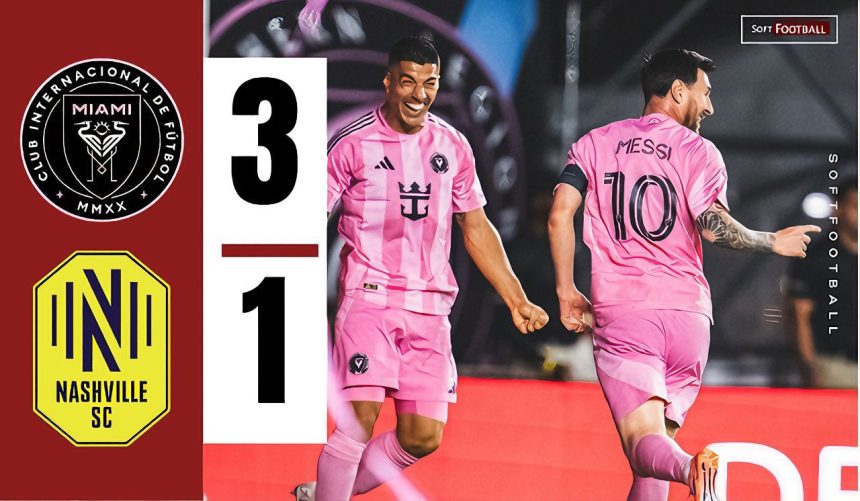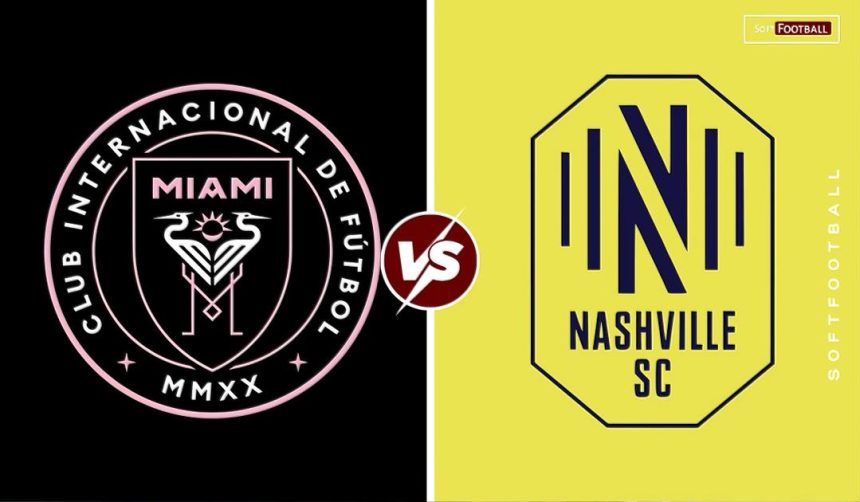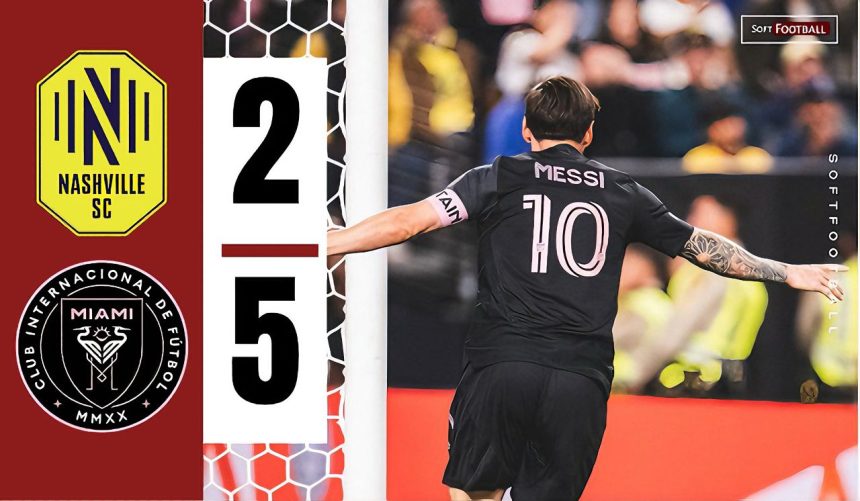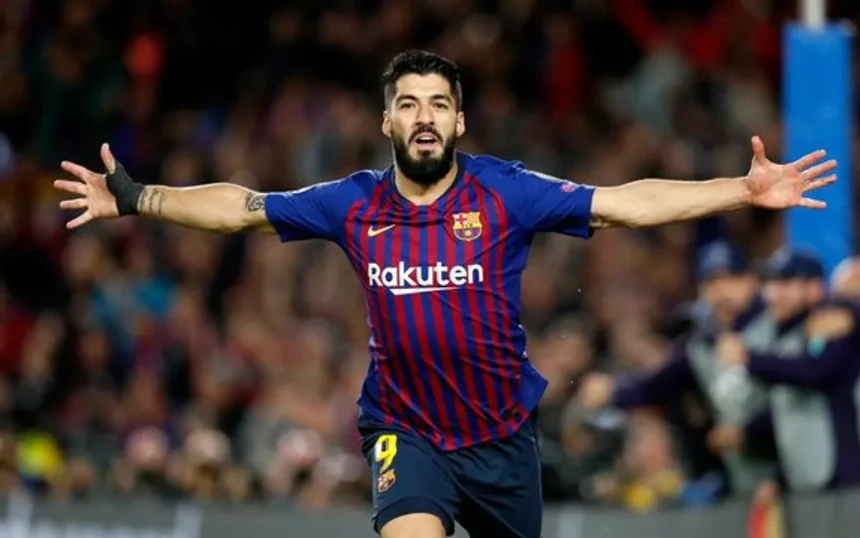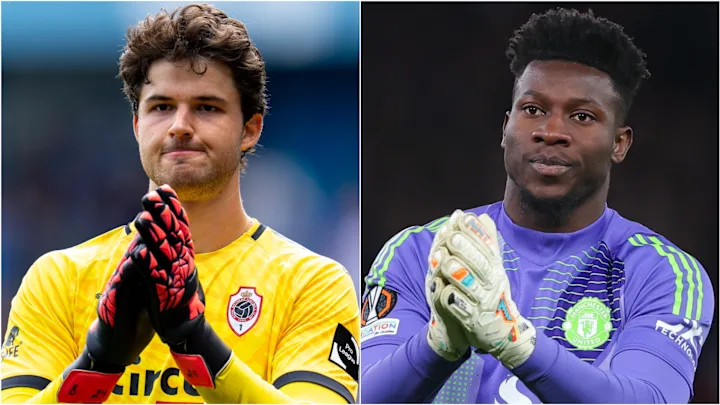Major League Soccer has officially announced a historic change to its competition structure, confirming that the league will transition to a summer-to-spring season format beginning in 2027. The move marks one of the most significant calendar evolutions in MLS history, aligning the league more closely with several major competitions around the world,Softfootball reports.
This season’s MLS playoffs have already delivered electric moments, with Lionel Messi leading Inter Miami into a postseason Semifinal spot after scoring a brilliant brace in Game 3. The Argentine superstar has been central to Miami’s surge, reaffirming his unmatched impact on the league.
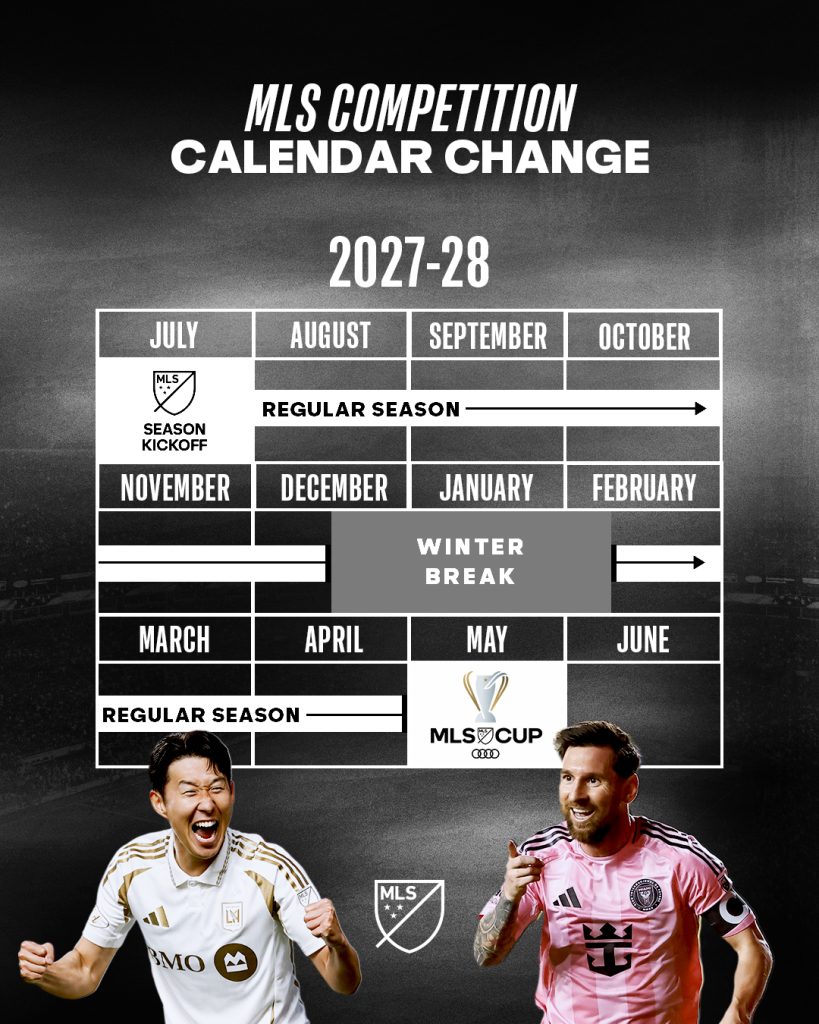
Messi also finished the 2025 regular season as the Golden Boot winner, capping off an extraordinary campaign with a hat-trick against Nashville that sealed his top-scorer status.
According to the MLS official X handle, the league confirmed these huge developments saying;
A new calendar for a global league. Beginning in 2027, Major League Soccer will adopt a summer-to-spring season format — a historic evolution in the league’s competition calendar.
The new format represents a deliberate step toward aligning the league with the global football ecosystem. This new schedule will mirror the structure used by Europe’s major competitions and many other top leagues worldwide.
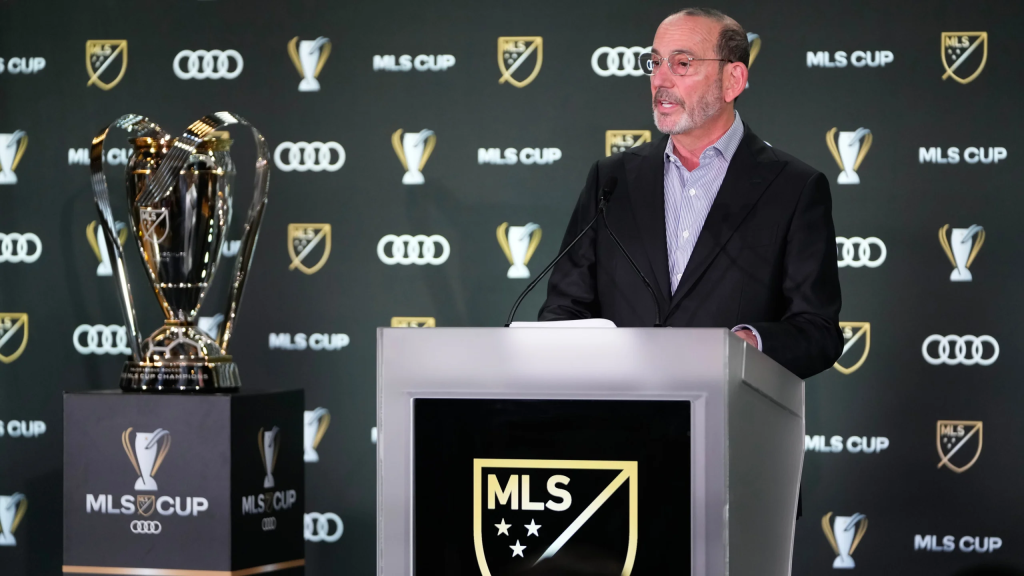
This alignment is expected to significantly improve player movement and transfer coordination, allowing MLS clubs to operate more seamlessly during international transfer windows. It also means new signings from Europe can join MLS sides mid-season in peak match rhythm rather than during pre-season, which could raise the level of league play immediately.
However, the shift will bring new challenges, especially for clubs based in colder markets. Teams may need to invest in heated pitches, winterized stadium facilities, and flexible scheduling to manage extreme winter conditions. MLS is expected to work closely with clubs to mitigate these concerns.

There is quiet optimism within league circles that the move will also strengthen relationships with European clubs, potentially increasing player exchanges and creating better developmental pathways for young MLS talents. With the league’s schedule now synced with global competitions like the FIFA Club World Cup, MLS teams will have a more stable roster throughout the season.
In the long term, the calendar switch signals MLS’s ambition to position itself as a fully integrated member of global football, no longer operating on an isolated schedule but competing in harmony with the rhythms of world football.









